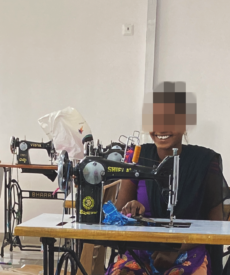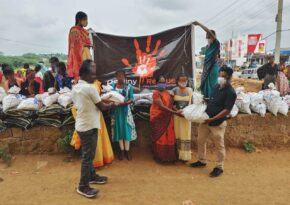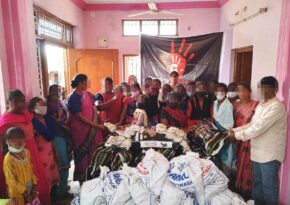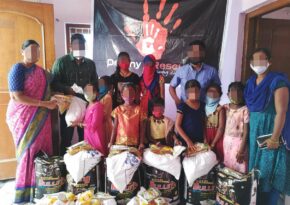173 girls have been rescued in an undisclosed country in Southeast Asia between July and August.
The survivors, ages eight to 18, were rescued via interventional rescue, where our rescue agents, who aren’t undercover, search communities to find kids selling sexual services to survive. They can be victims of sexual assault too.
A little over 30 of these rescues were already announced last month.
More than 150 girls sold sexual services on the streets to earn cash to survive, while the rest had been raped or sexually abused.
Most girls were desperate because they were poor, while some were pushed into a breadwinner role after their parents died from Covid-19.
Whether it’s one or both, deceased parents are a common risk factor behind survivors of interventional rescue. Other factors include at least one parent being a day laborer, absent, a sex worker or an alcoholic.
For the 173 girls, they’re now enrolled in our reintegration program. We offer them financial support to help them survive and education and vocational training, allowing them to apply and land safe employment in the future.
Thirty-nine survivors live in our residential homes, while the rest receive our services while living at home.

Our vocational training, including tailoring, beautician, and computing, has been disrupted by sporadic lockdowns in the country. The lockdowns shut schools, preventing survivors in residential homes from studying their vocational courses.
But thanks to our team fitting a computer and sewing machine in both of our Residential Care Homes, survivors can continue their studies.
In June, 20 survivors graduated from our residential care home and returned to their communities. Sixteen of them showed special tenacity and completed training in all three classes, usually survivors pick one or two.
Communities are tight-knit and notice the strength and improvement in a girl’s life after she graduates. Seeing lives changed as proof of our intentions, people are more trusting of our efforts in the future.
Rescue through food
Through one of our partners in the undisclosed country, we delivered food packs to 344 children and their families in communities vulnerable to sexual exploitation. The packs include rice, flour and potatoes, among other necessities.



Some girls in these communities risk having to sell sex for money because their father or caregiver, many of who were migrant or daily workers, lost their job because of Covid-19. Unable to find a job, the caregiver can’t provide for his family.
This has led to food insecurity in the communities with a risk of increased sex trafficking with children being the most vulnerable.
Given the desperation to put food on the table, one 17-year-old survivor was delighted to get a food pack. She was previously selling sexual services to help her family stay afloat because her parents have passed away, one from Covid-19.
Food packs have made a huge impact in the community, and as a result, the communities are more welcoming and open to talk and share their stories with us.
Child Rescue is part of a family of organisations responsible for the rescue of over 1300 people, including 890 children, across eight countries this year. Our mission is to rescue kids worldwide from sexual exploitation and human trafficking and help them stay free.
These 170 beautiful lives have begun the next chapter of their lives in freedom. We need supporters like you to join us in this fight. Your donation can help brave girls walk their paths of freedom and find the next child waiting to be rescued.

 US & International
US & International Australia
Australia United Kingdom
United Kingdom